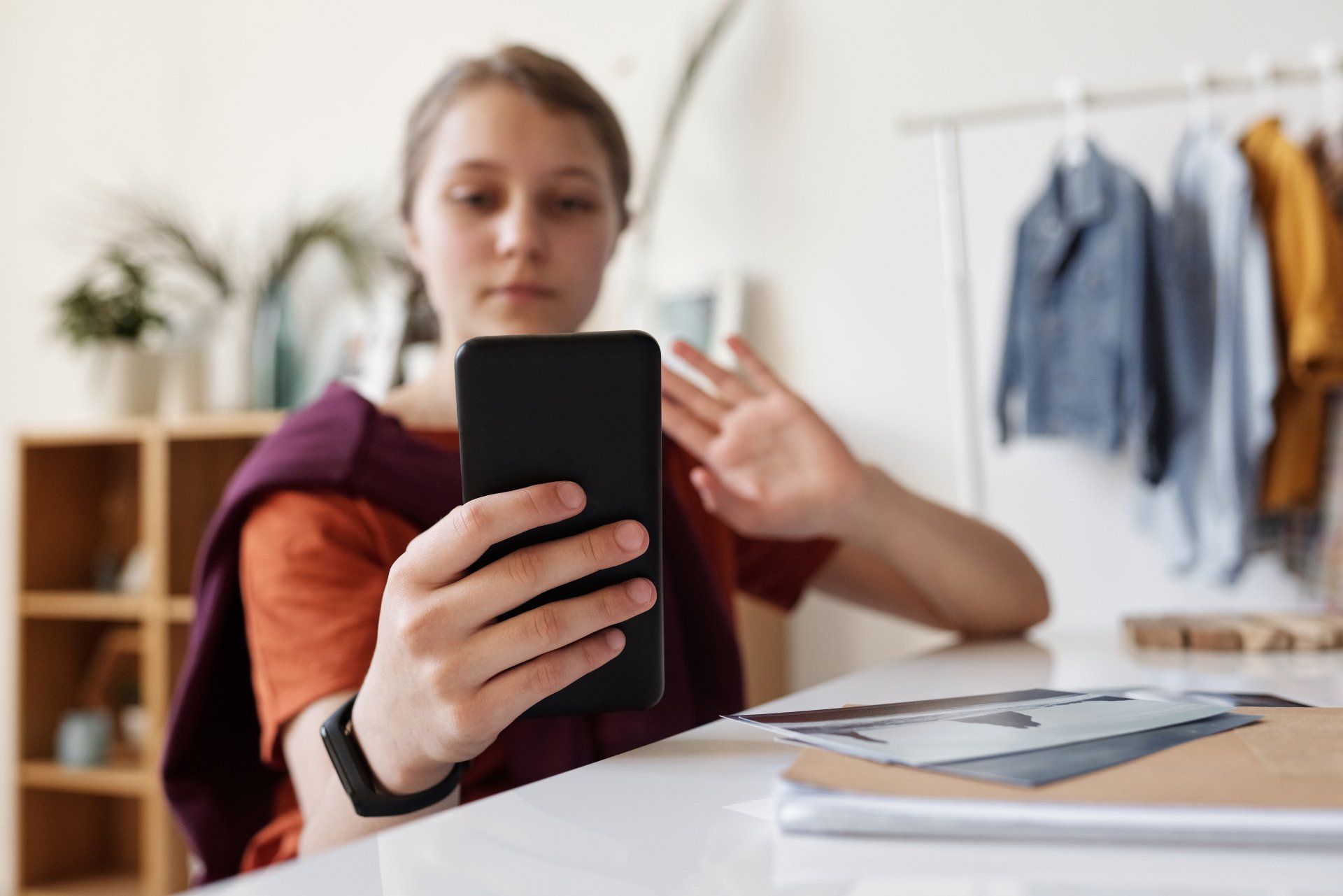




In this growing, fast-paced, electronic, and increasingly, virtual world it is easy to see the influence of social media in our lives. The impact of the pandemic has made many of us realise the sheer joys of being able to easily see what is going on in our friends' lives or being able to send them a message in the blink of an eye. However, it also has a negative side and unfortunately, our youth and children are not immune to it.
The endless streams of communication and conversation offer little rest for weary minds and the idea they may be missing out can often lead to anxiety and feed the demand for being evermore present online. These open streams of communication combined with the safety of being far away from others can lead to the rise of bullying or harassment that no longer ends the moment they close the front door. Without our knowledge and often fuelled by peer pressure our young people can be exposed to more adult or mature content that may disturb, frighten or leave a feeling of guilt and confusion that then leads to concealment and worry. They may want to talk to us but not know what to say, scared of what we might say back. A study conducted in 2019 compiling results from over 12,000 13-16 year olds in the UK found that if a child spent over 3 hours a day on social media they could predict they were at a heightened risk of poor mental health and wellbeing. Another study may have the answer to why as they discovered the activities of feedback seeking and social comparison, which is often commonplace within social media, resulted in depressive symptoms in young people.
With all of these pressures, worries and thoughts it’s no wonder studies have found a correlation with difficulty sleeping, however there can be benefits to social media though. In times of great division, it can connect our young people to like-minded others, introduce them to new hobbies or events going on around them and expand their understanding of cultures, customs and the world. Many find support for the difficult life events they may be facing that may otherwise feel very isolating for example times of mental health struggle, disabilities, or long-term illnesses. Like many things in life, if something is used correctly and with careful consideration, great positives can be gained.
One study found that although there was a correlation indicating the longer a young person spent on social media and the stronger their perception that others were happier than themselves this diminished the more time, they spent time with others in the real world. Whilst this is an older study, it shows there is hope for combating the negative effects of social media. Try to find out what their hobbies are and think of ways they can transfer these into activities further than that little pixel-covered screen. For example, if they like fantasy games maybe you can see if there is a local dungeon and dragons’ group, if they are interested in fashion why not see if they would like to take a sewing class, if they enjoy animal videos why not take them to a zoo? Each child will be different so this may be a learning process but don’t be discouraged if it takes a bit of time. The reward of doing so is great! It builds their confidence in something they are doing, gives them more to talk about with friends and helps build their sense of identity as they learn about who they are through what they love. Well worth the effort, you might say. We think it is too and that’s why here at The Island we harness the wonderful resources that are positive real-world experiences and mentorship to support vulnerable young people in our area.
According to the experts just because we are adults doesn’t mean we are immune from ‘time outs’. Instead, they state that one of the most powerful tools we can have in aiding our children with the pressures of social media is to set a good example. Although young people (16-24yrs) may take the lead in numbers of people on social media it may be a shock to learn that the most significant number of active users (coming in at a whopping 91%) is those between 35-44 years old. The advice from experts is to consider how you use tech. They advise creating times of the day where no one in the house is allowed to use tech and rooms with the same principle. They advise setting aside times such as car rides as tech-free times that can instead be used to talk to our children. They suggest that not only does this aid their regulation of tech but it also strengthens the parent-child bond and makes them feel more secure.
Perhaps in our distraction-free time, we can talk to our children about social media- the good, the bad and the ugly. Dr Catherine Steiner-Adair, EdD, an expert in child development and a research associate for Harvard Medical School states social media ‘won’t be sensitive to your child’s personality and it won’t answer his question in a developmentally appropriate way’. Using this time to open a dialogue about the sort of things they could be exposed to in the online world can be valuable in creating an atmosphere of trust, honesty and open communication. This opens the door for future conversations if they do see something that makes them uncomfortable.
In regards to monitoring of activity; the experts advise not to do this in secrecy but rather be their friend on the platforms, have open dialogues regarding their usage and reserving things like looking through messages or signing into their accounts for times of real cause for concern. If done correctly, this can help foster a relationship of trust and grow their self-esteem as they see that you see the good in them. Of course, it is not all that easy. We all want to cushion and protect our children from the negatives the world has to offer and social media presents a new challenge to the new generation of parents.
If you are struggling with worry over how social media is affecting your children or battling with how to help the children you love please do talk to people you trust. You aren’t alone and there are many additional sources of support available. The NSPCC, Young Minds, Action for children and Family Lives all have excellent online resources. In addition, Family Lives also has an internet chat function and phone line 0808 800 2222 (details of opening hours can be found on their website).
We are hugely appreciative of all the individuals and businesses who fundraise on our behalf as it really makes a big difference in the work we do to support the next generation to thrive.
If you are looking to fundraise for our charity, then let’s talk to see how we can support your fundraising initiatives. To get in touch, click here.





Contact us
Call
01904 628449 (Monday-Friday, 9am-3pm)
Email
enquiries@theislandyork.org
Address Regus House, Oakdale Rd, Tower Ct,
York, YO30 4XL
Registered Charity 1120420 | Company Reg No. 5698045